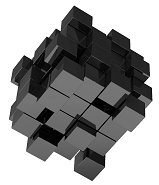 |

|
Content Owner: Roman Macek | ||||
Summary
Yes (incl. LACP - New)
Details
XenServer 6.1 added the following functionality, maintained with XenServer 6.5 and later:
- Link Aggregation Control Protocol (LACP) support: enables the use of industry-standard network bonding features to provide fault-tolerance and load balancing of network traffic.
- Source Load Balancing (SLB) improvements: allows up to 4 NICs to be used in an active-active bond. This improves total network throughput and increases fault tolerance in the event of hardware failures. The SLB balancing algorithm has been modified to reduce load on switches in large deployments.
Background:
XenServer provides support for active-active, active-passive, and LACP bonding modes. The number of NICs supported and the bonding mode supported varies according to network stack:
• LACP bonding is only available for the vSwitch, while active-active and active-passive are available for both the vSwitch and Linux bridge.
• When the vSwitch is the network stack, you can bond either two, three, or four NICs.
• When the Linux bridge is the network stack, you can only bond two NICs.
XenServer 6.1 provides three different types of bonds, all of which can be configured using either the CLI or XenCenter:
• Active/Active mode, with VM traffic balanced between the bonded NICs.
• Active/Passive mode, where only one NIC actively carries traffic.
• LACP Link Aggregation, in which active and stand-by NICs are negotiated between the switch and the server.
Reference: http://bit.ly/2d8uA7C
- Link Aggregation Control Protocol (LACP) support: enables the use of industry-standard network bonding features to provide fault-tolerance and load balancing of network traffic.
- Source Load Balancing (SLB) improvements: allows up to 4 NICs to be used in an active-active bond. This improves total network throughput and increases fault tolerance in the event of hardware failures. The SLB balancing algorithm has been modified to reduce load on switches in large deployments.
Background:
XenServer provides support for active-active, active-passive, and LACP bonding modes. The number of NICs supported and the bonding mode supported varies according to network stack:
• LACP bonding is only available for the vSwitch, while active-active and active-passive are available for both the vSwitch and Linux bridge.
• When the vSwitch is the network stack, you can bond either two, three, or four NICs.
• When the Linux bridge is the network stack, you can only bond two NICs.
XenServer 6.1 provides three different types of bonds, all of which can be configured using either the CLI or XenCenter:
• Active/Active mode, with VM traffic balanced between the bonded NICs.
• Active/Passive mode, where only one NIC actively carries traffic.
• LACP Link Aggregation, in which active and stand-by NICs are negotiated between the switch and the server.
Reference: http://bit.ly/2d8uA7C
